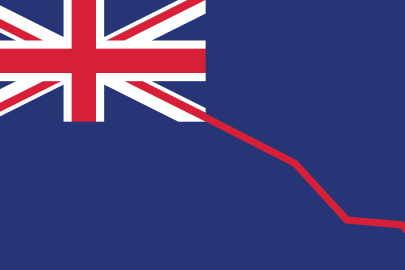Apr 21, 2016 Politics
The English text near the coastal memorial boasted a success of sorts: it was thanks to wonderful British organisation that the Allies retreated with very few losses. Nonsense, scoffed the submariner: “Do you think that we couldn’t hear what was happening? After we had shared jokes across the trenches? Of course we could! But why shoot them when they were leaving our country, which is what we wanted all along?”
It would have been better if New Zealand had refused to fight in Turkey, and if our leaders hadn’t offered our boys as defenders of Mother England at all.
Yep, we were leaving alien soil, repulsed as defeated invaders. On first glance, it is odd that the myth of Gallipoli as the forger of Kiwi identity endures when our soldiers went there as aggressors in the name of Empire, alongside a much bigger British force. We should never have been there. In that particular battle, we were on the wrong side (and the entire war is not exactly a clear-cut, unambiguous conflict of goodies vs baddies). It would have been better if New Zealand had refused to fight in Turkey, and if our leaders hadn’t offered our boys as defenders of Mother England at all. But, of course, it was preordained, inevitable.
The official schoolkid gloss about why we were at the non-British end of Europe is that a supply line was required from the Mediterranean through Constantinople to Russia. But why was the Ottoman Empire an enemy? This wasn’t a foregone conclusion — both Britain and Germany had long been competing for influence in Anatolia. Indeed, in mid-1914, Britain had just finished building two warships for Constantinople — one of which was proudly paid for by ordinary Turkish people, apparently by selling their hair to wigmakers and collecting pennies from willing schoolchildren. But on Winston Churchill’s orders, the ships were seized for use by the Royal Navy and never handed over to the Turks. Sure, it was war, but that doesn’t explain why Britain never gave the Turks their money back. Understandably, the Turks were incensed, and the Germans came to their rescue with a gift of two cruisers (strings attached).
Some speculate that Churchill’s illegal theft was specifically designed to throw Constantinople onto the other side so that the Allies could fight the Ottomans, beat them and take the eastern empire for themselves. Certainly by March 1915, after Allied bombing of Aegean forts had begun, Russia, France and Britain secretly signed the Constantinople Agreement, which outlined post-war plans for Ottoman dismemberment.
Nuclear-free flags should fly on Anzac Day; that policy is one of the true legacies of Gallipoli.
Either way, Britain looks like an ignominious leader for New Zealand to follow into this particular battle. But that’s precisely the point of Anzac Day. It is partially because the campaign was a tragic, unnecessary farce — not in spite of it — that Gallipoli represents the birth of our nation. Our amateur soldiers chaffed under wasteful and costly orders for dubious goals; they realised the empire’s interests were not always their own. Partially due to the casualties in World War I, New Zealand commander Bernard Freyberg was told in World War II to refuse Allied orders if they weren’t in our national interest.
So let Anzac Day remind us to follow that example: to make independent decisions as a state, and to think carefully before committing to conflicts to please bigger, uglier allies. Let it be a day of thankfulness that, while we currently have more than 100 soldiers on a training mission to Iraq, our current government is reported to have ruled out sending special forces, despite American pressure to do so. Let it be a day of relief that the government has indicated it does not intend to extend the training deployment past its assigned two years. Nuclear-free flags should fly on Anzac Day; that policy is one of the true legacies of Gallipoli. Anzac Day is a reminder that we should do things on our own terms. A lesson learnt the hard way.
For more on Gallipoli, see Catherine McGregor’s review of 25 April.





